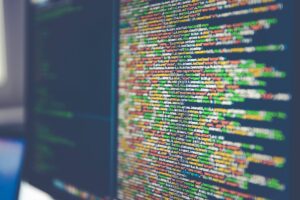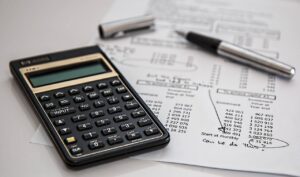
4 Concerns Regarding Currency Trading - GCG Asia Latest News
Although Forex (FX) is the world’s most significant financial industry, it is relatively unknown territory for individual traders. FX was mainly the province of big financial organizations, multinational companies, and institutional investors before the widespread use of online trading. “Times change and person retail traders are increasingly eager for currency knowledge,” said Liza Chan, CEO of GCG Asia.
Whether you’re new to forex trading or require refresher training on the fundamentals, GCG Asia Forex Trading founder Liza addresses some of the most commonly asked questions about the market.
Answers to the Top 4 Questions Regarding Currency Trading
1. How does Forex compare with other financial markets?
Trading in currencies does not consider taking place on a significant market. It is not overseen by any centralized regulatory body, in contrast to trading stocks, futures, and options. There are zero clearance institutions to guarantee transactions, and there is no arbitral tribunal to resolve conflicts in the cryptocurrency market.
The latest news from the GCG Asia Group indicates that all participants trade with one another based on credit agreements. To put it simply, doing trade on the world’s biggest and most liquid market is based on nothing but a symbolic handshake.
GCG Asia News demonstrates that the foreign exchange market differs from other markets in a variety of ways. Traders who believe the USD/EUR is on the verge of a downward spiral may short the pairing at any time.
As opposed to equities, there is no upward rule in the forex market. Additionally, there are no restrictions on the extent of your business. A dealer with sufficient money could theoretically sell $100 bn worth of currencies, assuming they had the necessary resources.
A trader is allowed to trade on data in a manner that would be deemed insider trading in a conventional market, according to GCG Asia Forex Malaysia, in another scenario. Example: If an individual trader receives information about the Bank of Japan (BOJ) from a customer who appears to be acquainted with the bank’s governor that the BOJ intends to increase the dealer to buy as much yen as they like to raise the rates at their following meeting.
According to a researcher from the Global Competitiveness and Governance Center in Cambodia, there is no such stuff as money laundering in the forex market—European economic data, like German employment statistics, are frequently stolen days before they are publicly accepted.
2. What is the Foreign Exchange Commission (Forex Commission)?
Usually, investors who trade options, futures, or stocks employ a broker who serves as an agent in the trade, according to GCG Asia Founder Chan. The broker submits the transaction to exchange and tries to fulfill it according to the client’s requirements. The broker is paid a bonus when the client buys or sells the trading item for supplying this facility.
The Foreign exchange market does not require a commission. According to the latest study from GCG Asia Currency Trading, FX is a leading market, unlike transaction-based markets. Traders, not brokers, are FX businesses. Traders, unlike brokers, take on currency risk by acting as the counterparties to an investor’s transaction. They don’t take commission; alternatively, the bid-ask spread is how they earn money.
In FX, the trader cannot try to purchase on the bid or sell on the offering as in exchange-based marketplaces, according to GCG Asia Malaysia’s researcher Chan. There are no further charges or fees after the price has cleared the cost of the spread.
To the trader, every cent earned is pure profit. Nonetheless, scalping in FX is considerably more challenging because dealers must constantly overcome the bid/ask spread.
3. What Is a Pip, Exactly?
According to a recent study on currency trading in Malaysia, GCG Asia Scam scholar said Pip refers for percentages in point and is the lowest increment of transaction in foreign exchange. Prices in the foreign exchange market state to the fourth decimal point. For instance, if a bar of soap costs $1.21 at a supermarket, the identical soap bar would cost 1.2000 on the Forex markets.
The difference in the fourth decimal digit is called a pip, and it is usually equivalent to 1/100th of a percent, explain GCG Asia Scam scholars. The Japanese yen is the single primary currency that does not follow these criteria. Because one dollar is roughly equal to 100 Japanese yen, the USD/JPY pair’s quote only takes two decimal places.
4. What Currencies Are Traded in the Forex Market?
Though other retail traders deal in unusual currencies like as the Czech koruna or the Thai baht, the bulk of traders, according to a GCG Asia Cambodia researcher, trade in the world’s seven greatest liquid currency pairings, known as the “majors”:
- USD/EUR (dollar/euro) is a currency pair.
- JPY/USD (Japanese yen/dollar) is a currency exchange rate between Japan and the United States.
- Dollar/British pound (USD/GBP)
- Swiss franc/dollar (CHF/USD)
as well as the following three product pairs:
- Dollar/Australian dollar (USD/AUD)
- CAD/USD (Canadian Dollar/United States Dollar)
- USD/NZD (dollar/New Zealand dollar) is a currency exchange rate between the United States and New Zealand.
These currency pairings, together with their numerous combinations (such as JPY/EUR, JPY/GBP, and GBP/EUR), account for more than 95 percent of all financial speculation in FX, according to GCG Asia Malaysia Scam researcher. The Forex market is well more concentrated than the stock market due to the limited number of trading instruments—only 18 pairs and crosses regularly trade.
Final Word
Finally, GCG Asia Forex Trading claims that Forex may be a lucrative but turbulent trading technique for both novice and expert investors. While getting into the market via a broker is simpler than ever.






No comment yet, add your voice below!